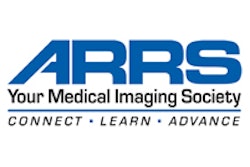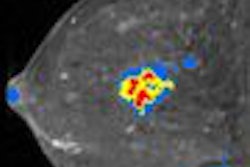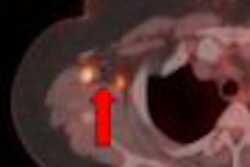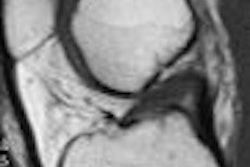Dear MRI Insider,
Austrian researchers may have found a better way to determine whether women with breast cancer have experienced metastasis to the lymph nodes. They used a contrast-enhanced breast MRI technique that turned in impressive accuracy numbers, though wider dissemination of the application could be limited by the investigational nature of the contrast agent.
Whether cancer has spread to the axillary lymph nodes can have a major impact on the course of breast cancer treatment. If no metastasis is detected, then women have less-invasive treatment options, as opposed to mastectomy and/or lymph node dissection for those with metastatic disease.
The Austrian group used an investigational MRI contrast agent based on ultrasmall superparamagnetic iron oxide (USPIO) particles, and their findings are the subject of our Insider Exclusive for this edition. Learn more about their study by clicking here.
While we're on the topic of breast MRI, click here to read about a recent development in which women's imaging centers are finding it tough to get reimbursed for scans using computer-aided detection (CAD) software. Some industry observers believe the phenomenon is related to a coding change for breast MRI CAD studies that was actually supposed to make it easier to get reimbursed.
In other news in the MRI Digital Community, we're featuring a recent report from the American Roentgen Ray Society (ARRS) meeting that explores why some patients are developing nephrogenic systemic fibrosis (NSF) after MRI contrast administration, while others aren't. Certain risk factors have been suggested for NSF, but U.S. researchers said that they were unable to find any statistically significant causal relationships behind a number of factors. Get more on that story by clicking here.
What else is going on in the world of MRI? Canadian and British investigators report on their use of MR-guided focused ultrasound to treat uterine fibroids in a story you can reach by clicking here. Meanwhile, another British group believes that referring patients directly to a knee MRI exam rather than to an orthopedic specialist first could be more cost-effective for the National Health Service.
On the legal front, get an update on the status of NSF lawsuits against contrast makers, and find out why the operator of a group of MRI centers in Florida paid $7 million to the federal government.




















